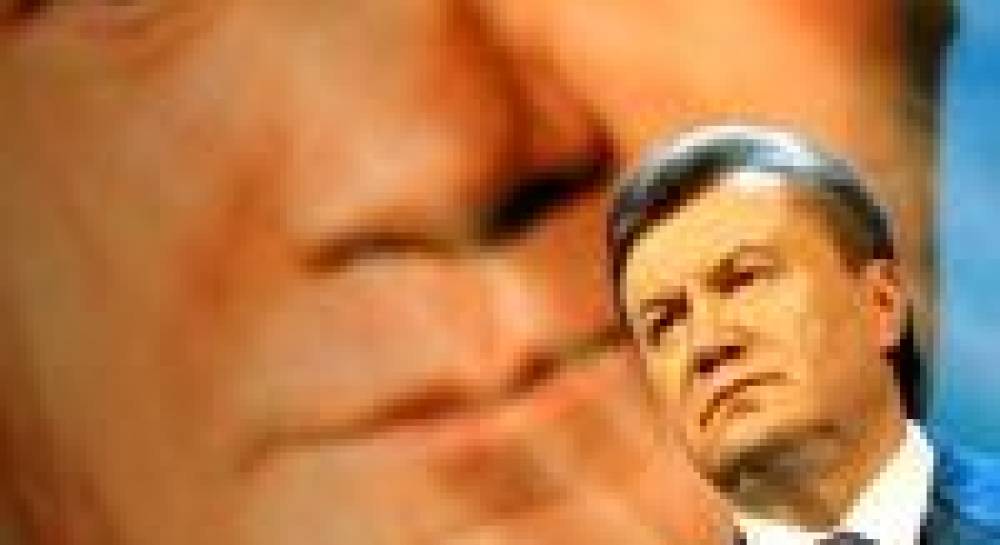
Yanukovich's First Year
One of the proudest items on the wall of the U.S. ambassador’s office in Kiev from 2006-2009 was a world map showing the Freedom House ranking of free, not free and partly free countries around the world. Visitors could clearly see that...
The New York Times, March 1, 2011
One of the proudest items on the wall of the U.S. ambassador’s office in Kiev from 2006-2009 was a world map showing the Freedom House ranking of free, not free and partly free countries around the world. Visitors could clearly see that Ukraine ranked as the only free country among the post-Soviet states.
Today, however, the Freedom House map shows Ukraine as only partly free. President Viktor Yanukovich, concluding his first year in office, should carefully consider what this means for his oft-expressed goal of integrating his country into Europe.
Ukraine has held a half dozen parliamentary, presidential and nationwide local elections since the Orange Revolution in late 2004. International observers judged all to be generally free and fair — that is, until the October 2010 election, the first conducted under the Yanukovich administration. President Yanukovich made some last-minute attempts to fix the election law, but the ballot fell short of the standard set by previous elections and was widely condemned as flawed.
Another troubling sign is the apparent effort by prosecutors to target officials from the previous government of former Prime Minister Yulia Tymoshenko. Her minister of the interior, Yuri Lutsenko, sits in jail awaiting trial. Her minister of economy, Bohdan Danylyshyn, was granted political asylum by the Czech Republic — a friendly country that wants to see Ukraine succeed — on the assumption that he would be unfairly prosecuted by a corrupt, politically-driven judiciary in Ukraine. The former prime minister, still a formidable politician, is being questioned extensively by the prosecutor-general and banned from international travel.
At a Feb. 14 public talk in Washington, Foreign Minister Kostyantyn Gryshchenko offered an eloquent defense of Ukraine’s recent record on democratic practices. To his credit, he also engaged with Freedom House the next day on the question.
The truth likely lies somewhere between the picture drawn by Ukrainian diplomats and that drawn by President Yanukovich’s domestic critics. But the fact that the foreign minister felt he had to focus his comments on Ukraine’s domestic political scene is a reflection of the impression in Europe and the United States that Ukraine has turned away from European-style democracy.
This carries significant implications for Kiev’s foreign policy. Ukraine under its previous president, Viktor Yushchenko, and under President Yanukovich has sought to integrate fully into Europe, including someday joining the European Union. Ukraine certainly ought to have the chance. Reaching that goal, however, means reforming the economy, restructuring laws, and raising standards to meet E.U. requirements.
While all understood that the process was sure to be long, the effort was seen to be worthwhile and achievable, with time and determination. The U.S. government fully supported this effort. Developments in Ukraine, however, cause Europeans and others to question Ukraine’s commitment to broadly-accepted European norms of political behavior.
If President Yanukovich is committed to European integration and E.U. membership, his administration’s domestic actions make achieving that goal much tougher. The European Union has turned its focus to internal issues and shows little enthusiasm for integrating neighboring states. To the extent that Europeans see Kiev adopting a more autocratic model of government, it will be that much easier for them to ignore Ukraine’s desire to integrate.
So President Yanukovich faces a choice. He can continue, or allow the continuation of, current domestic policies and watch his chances of integrating Ukraine into Europe fade. Or he can strengthen democratic institutions — which, by the way, resulted in his own election last year — and restore positive momentum to the relationship between Ukraine and Europe.
For its part, the West can help crystallize this choice. European and American officials should make clear to the president — in plain terms, so that nuance is not misread — that the policies of his administration look like democratic backsliding. They should make equally clear that continuing this course will disappoint Ukraine’s well-wishers around the world and produce a growing divide between Ukraine and Europe.
Steven Pifer, a senior fellow at the Brookings Institution, and William Taylor, a senior vice president at the U.S. Institute of Peace, served as the third and sixth U.S. ambassadors to Ukraine.

